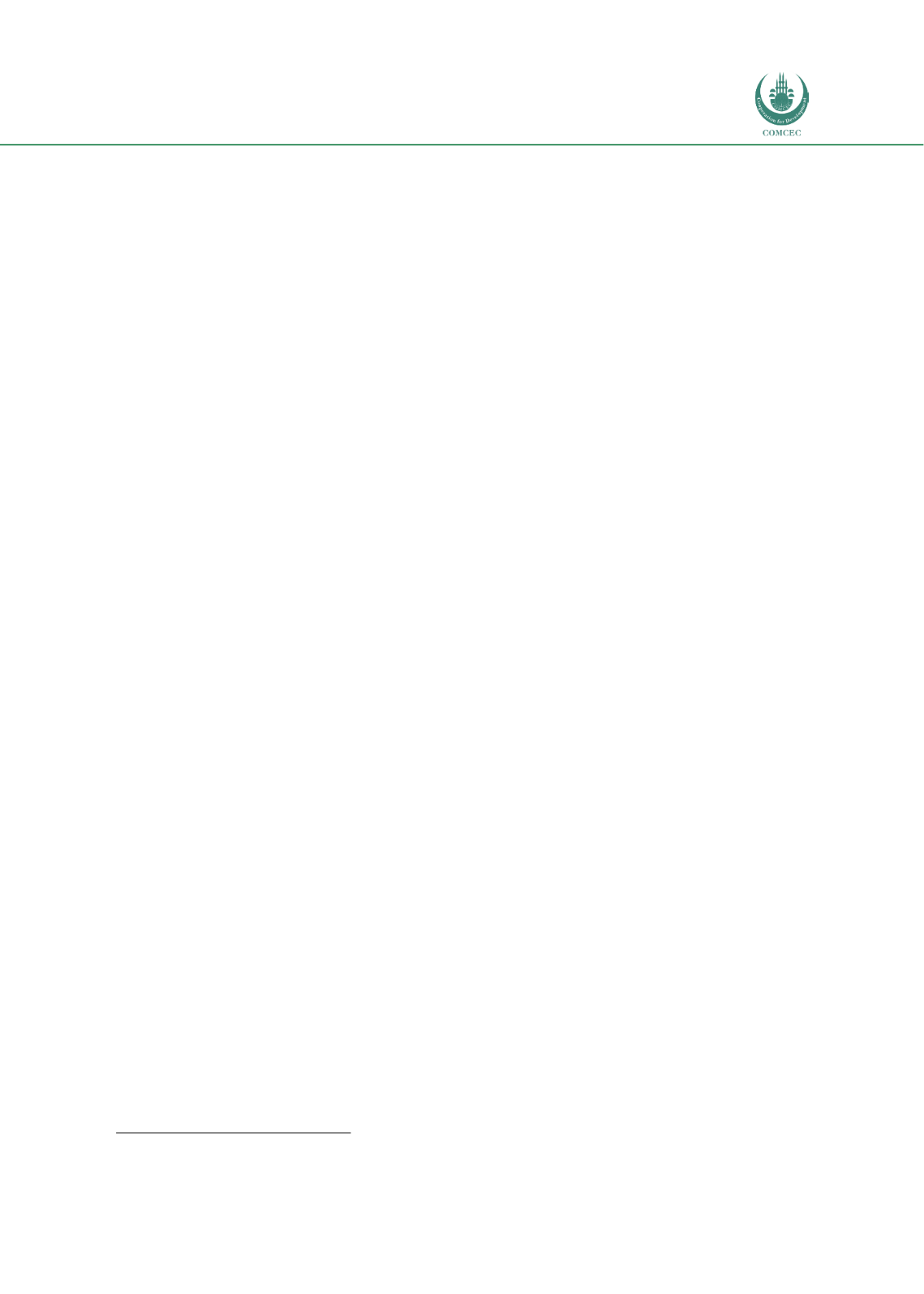

Infrastructure Financing through Islamic
Finance in the Islamic Countries
67
Case Study: Waqaf Al-Nur, Johor, Malaysia
20
The state of Johor, Malaysia established the Johor Corporation (JCorp) as a state investment
entity in 1968. Over the years, JCorp has become a large conglomerate in the country with
businesses in oils, food, restaurants, hospitality, property, logistic services and health services.
Being a state government entity, JCorp also has taken initiates in the social sector. A key
innovation is enhancing social responsibility, JCorp established a corporate waqf in 2006 with
an initial contribution of RM 200 million. The Waqaf Al-Nur Corporation Berhad (WANCorp) is
registered as a limited liability company with its assets and stocks kept as endowment.
WANCorp holds equity of several listed companies in the endowment and a part of the income
generated in the form of dividends is reinvested in the endowment and the remaining part is
distributed for social purposes.
An important initiative of WANCorp is the establishment of the network of Waqaf An-Nur
clinics and hospitals to serve the healthcare needs of the poor. In collaboration with KPJ
Healthcare Berhad, which is a subsidiary organization of JCorp, WANCorp has developed the
Hospital Waqaf An-Nur (HWAN) in Pasir Gudang, Johor; 24 health clinics (Klinik Waqaf An-Nur
or KWAN) all over the country; and five mobile clinics in Kuala Lumpur, Selangor and Johor. A
total of 1.443 million treatments have been carried out by the end of December 2017 at a
nominal cost of RM 5 per patient. The waqf serves people from all walks of life and has treated
116,859 non-Muslims. Among other things, subsidized treatments for kidney related problems
are provided through dialysis centres that operate alongside clinics.
Another initiative of WANCorp related to the infrastructure sector is the Waqaf Saham Larkin
Sentral (Larkin Sentral) that has a target to raise a total of RM85 million to finance the upgrade
and refurbishment of the Larkin Sentral Transportation Terminal and Wet Market at Johor
Bahru. The fund will also be used for the purchase of land, construction of multi-storied
parking, and shops devoted to single mothers and lower income groups. The waqf funds are
raised by offering Larkin Sentral shares with a minimum amount of RM100 or 1,000 unit
shares of RM0.10 per share that can be purchased by individuals and institutions (JCorp 2017).
Challenges and Prospects
Although there are still large amounts of assets that are locked in as waqf, these do not
contribute to socio-economic welfare due to neglect and mismanagement. The potential of
using social institutions to provide social infrastructure, however, is huge. Ahmed (2004)
reports that based on different opinions, the zakat collection in different countries ranges from
1.8% of GDP to 4.8% of GDP. With the GDP of OIC member countries being USD 6.353 trillion in
2016, this translates to potential figures of USD 114.34 billion and USD 304.9 billion that can
be collected from zakat and used for social sectors. However, for zakat to make an impact on
social welfare, there is a need to mobilize these resources in an organized and efficient manner
and then use them effectively. This would require building organizations and institutions that
can build trust by showing their impact on society.
Key challenges related to existing waqf include the appropriation and dilapidation of assets
that yield small returns. For example, in Bosnia, around 11,324 waqf assets with an area of
30,342,496 square meters valued at EUR 372 million were usurped by the state of Yugoslavia
during the 1945-1990 period. Furthermore, 1311 waqf properties were destroyed and another
20
Information on the case study is taken fromWorld Bank and IRTI (2016) and JCorp (2017).
















